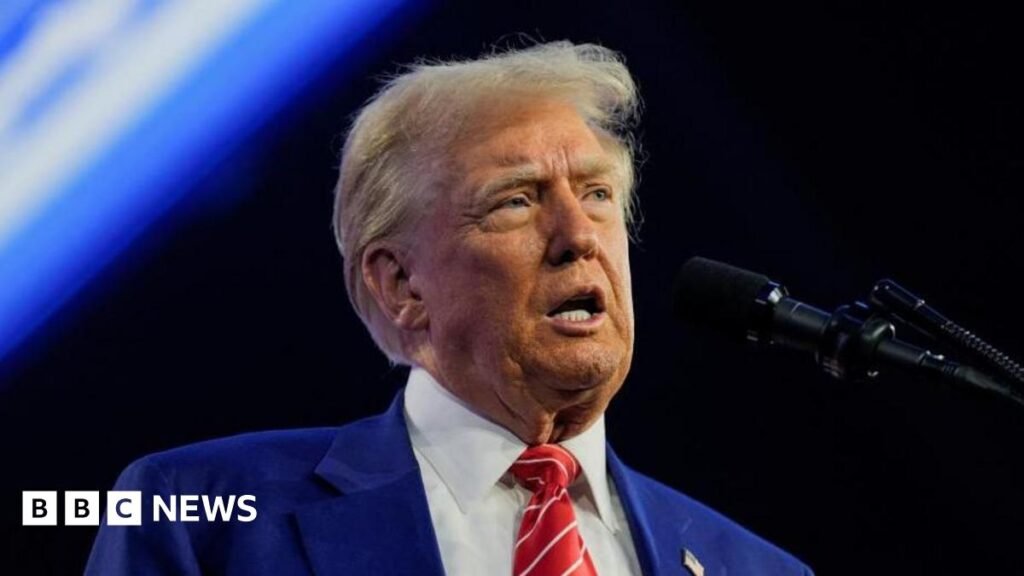The case follows Trump’s conviction in May of 34 felony counts of falsifying commercial documents related to a $130,000 (£105,000) payment to adult film star Stormy Daniels.
The conviction was related to Trump’s attempt to hide payments to his former lawyer Michael Cohen, who in the final days of the 2016 election campaign paid off the adult film star to keep quiet about alleged sexual contact with Trump.
The president-elect has denied any wrongdoing and pleaded not guilty, arguing the case was an attempt to damage his 2024 presidential campaign.
On Friday, a Trump spokesman criticized Judge Merchan’s latest order, adding, “President Trump should be allowed to continue the presidential transition process and carry out the vital duties of the presidency unhindered by the remnants of this or any remnants of the witch hunt.” Stephen Cheng said.
“There should be no conviction, and President Trump will continue to fight these hoaxes until they are all gone.”
In its latest motion against the case, Trump’s defense argued that the case would hang over him during his presidency and interfere with his ability to govern.
The judge was told there were several steps he could take to assuage Trump’s concerns that while he was president he was distracted by a criminal case that did not take the “last resort” of overturning a jury verdict.
Judge Merchan weighed his options, which included delaying sentencing for Trump, 78, who will leave the White House in 2029, or guaranteeing a sentence that does not include prison time.
Trump initially argued unsuccessfully that the case against him ran afoul of the Supreme Court’s ruling on presidential immunity in his first motion to dismiss the case.
In July, the nation’s highest court ruled that presidents have broad immunity from criminal prosecution for “official acts” they perform while in office.
However, Judge Merchan ruled last month that Trump’s conviction for concealing the money was valid.
The sentence, handed down on January 10, will make him the first felon to serve in the White House.
While falsifying business documents is punishable in the US by up to four years in prison, there is no minimum sentence and no prison term is required.
Even before his election victory, legal experts believed that Trump was unlikely to face prison time, given his age and criminal record.
Trump was also charged in three other state and federal criminal cases: one involving classified documents and two related to his alleged efforts to overturn his 2020 election defeat.
The president-elect was originally scheduled to be sentenced on November 26, but Judge Merchan moved the date after Trump won the presidential election.

